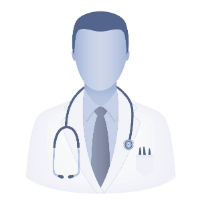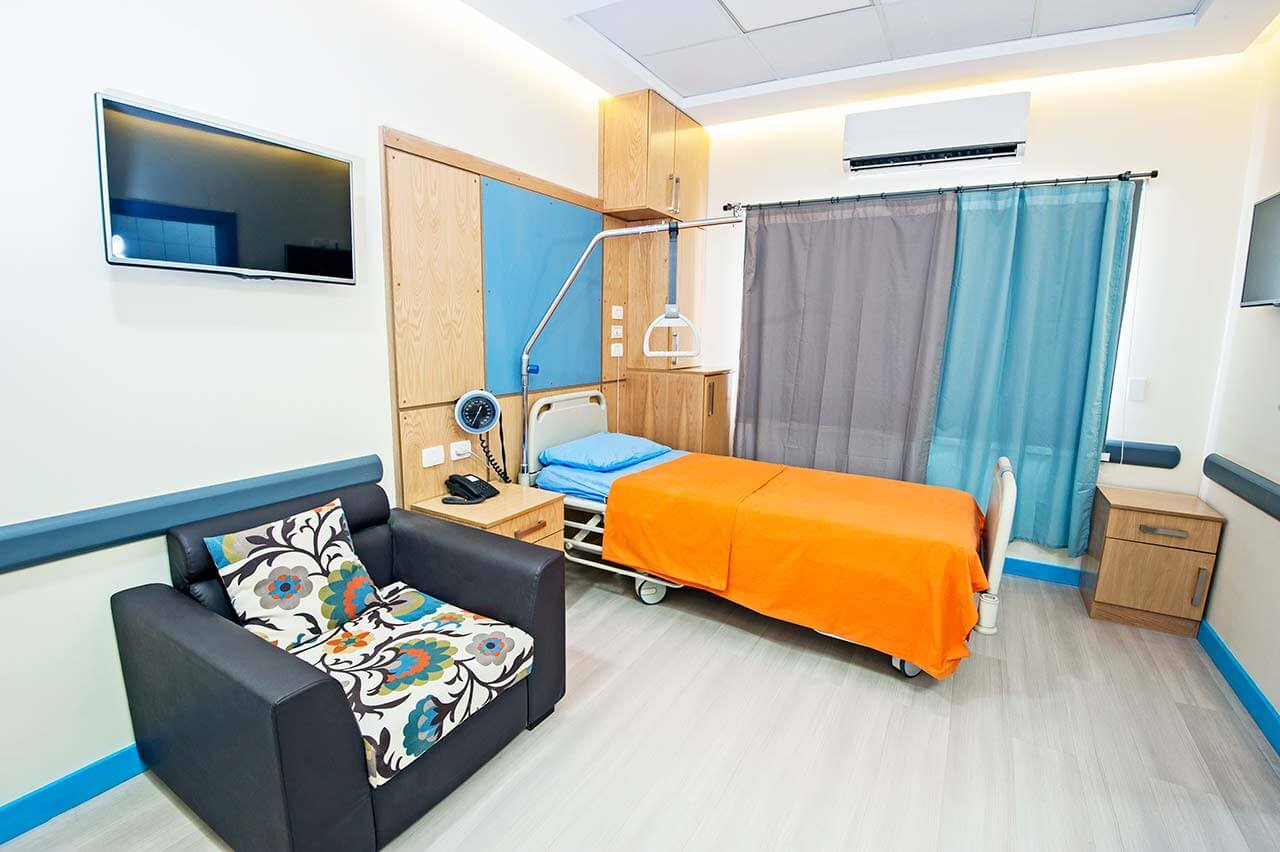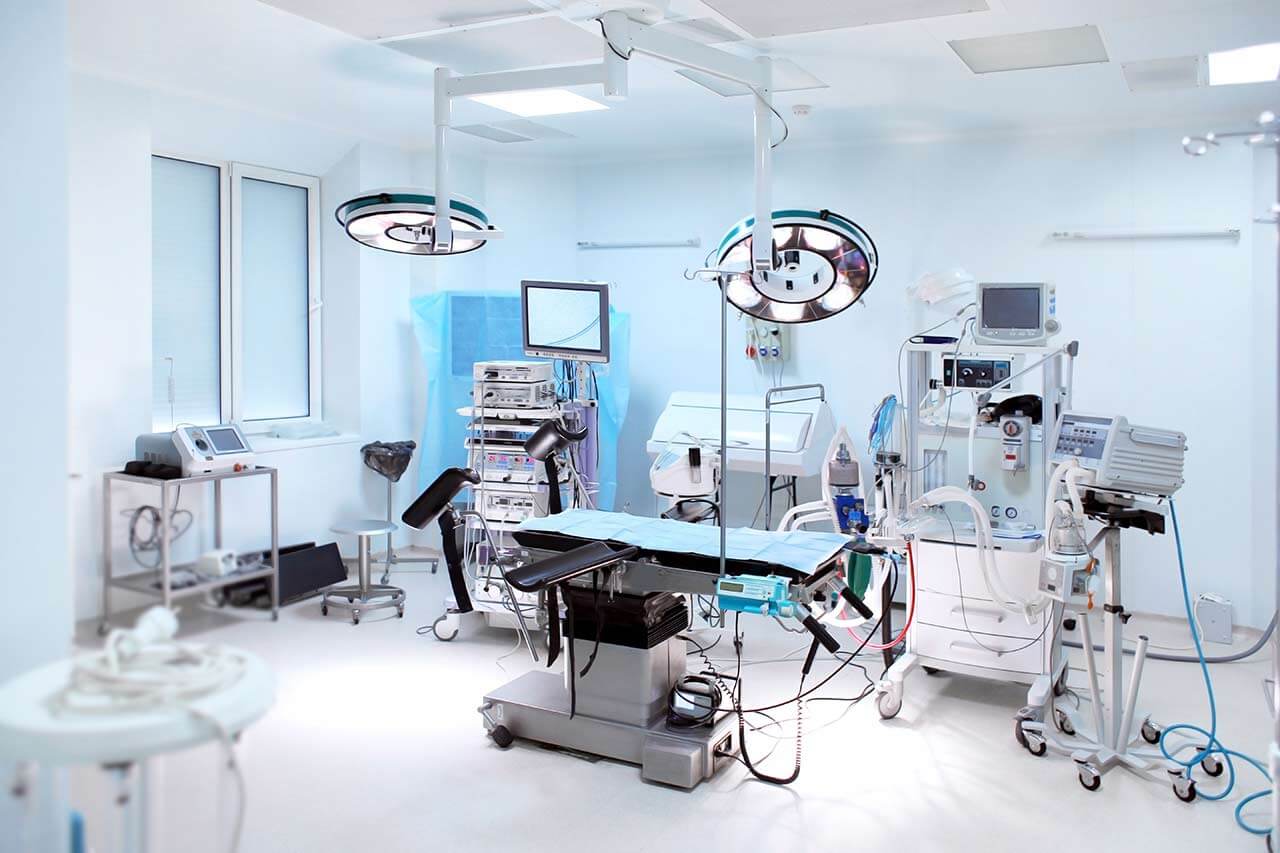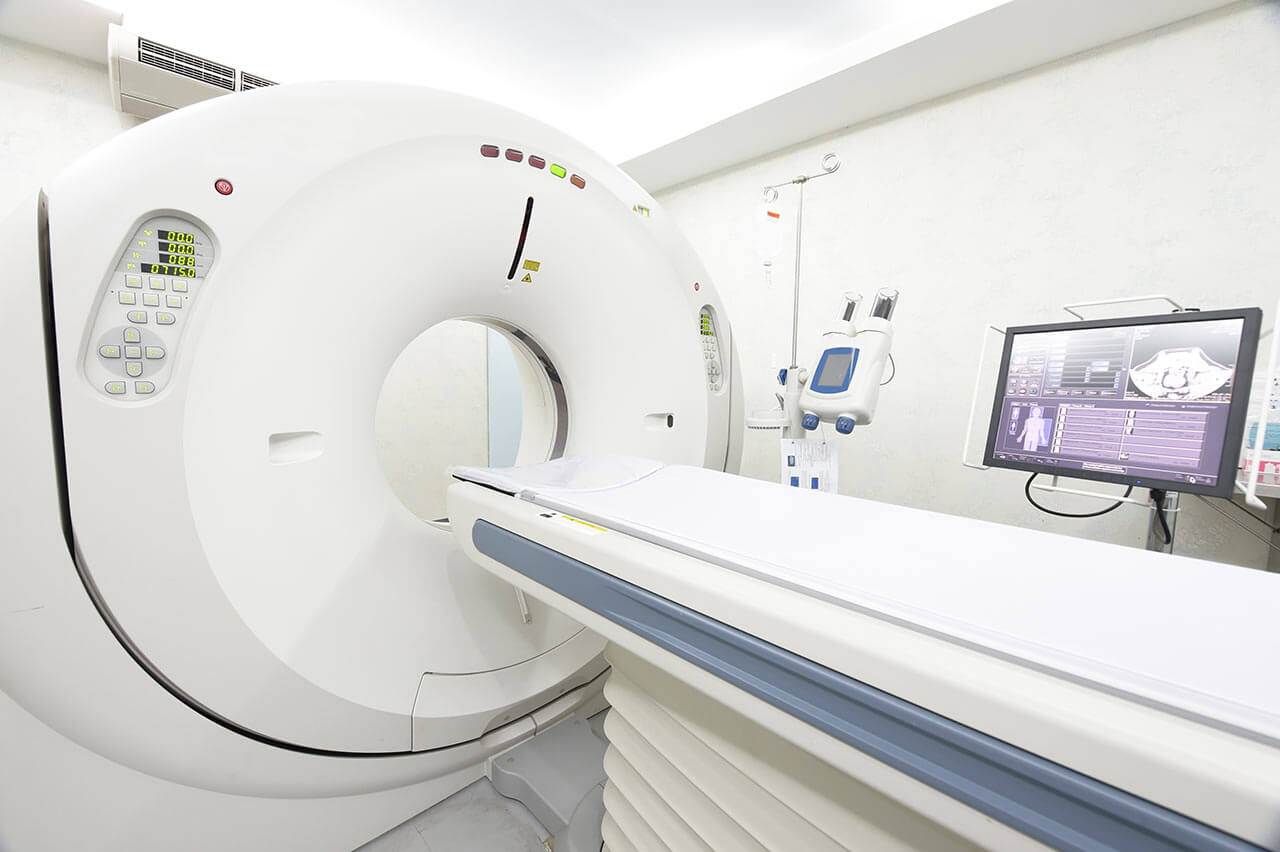
The program includes:
- Initial presentation in the clinic
- clinical history taking
- review of medical records
- physical examination
- laboratory tests:
- complete blood count
- general urine analysis
- biochemical analysis of blood
- inflammation markers (CRP, ESR)
- blood coagulation analysis (aPTT, PT, INR)
- tumor markers (CEA, CA19-9, AFP)
- ultrasound of the abdomen
- gastroscopy
- biopsy with histological examination
- CT/MRI of the abdomen
(if indicated clinically, additional cost is 650/1200€) - barium passage
- nursing services
- nutrition recommendations
- consultation of related specialists
- treatment by chief physician and all leading experts
- explanation of individual treatment plan
Required documents
- Medical records
- Esophagogastroduodenoscopy (EGD) (if available)
Service
You may also book:
 BookingHealth Price from:
BookingHealth Price from:
About the department
The Department of Gastroenterology and Hepatology at the University Hospital Carl Gustav Carus Dresden offers the full range of accurate diagnostics and effective treatment of gastrointestinal diseases, including liver and pancreatic pathologies. Doctors cooperate closely with the Department of Abdominal, Thoracic and Vascular Surgery, as well as with the Comprehensive Cancer Center Dresden. The department has a modern Endoscopy Unit, where more than 6,000 endoscopic procedures are performed annually. In addition, the department has advanced equipment for comprehensive ultrasound and functional diagnostics of the gastrointestinal tract. The department's therapeutic options include drug therapy using the very latest and the most effective drugs, as well as endoscopic procedures, for example, to remove cysts and small tumors, as well as to restore the gastrointestinal patency. The department's doctors devote enough time to personal communication with patients: they tell in detail about the specifics of the disease and possible treatment options, as well as give recommendations for recovery after inpatient treatment. The department is headed by Prof. Dr. med. Jochen Hampe.
The department has a modern Endoscopy Unit, where more than 6,000 endoscopic procedures are performed every year. Along with conventional endoscopy, such modern techniques as endoscopic examination of the small intestine (double-balloon enteroscopy, capsule endoscopy), argon plasma coagulation for bleeding or superficial pathological changes in tissues, tissue staining during examination (chromoendoscopy), zoom endoscopy, confocal laser scanning microscopy and narrow-band imaging are used here. The department's specialists carry out endoscopic removal of large areas of the mucous membrane (mucosal resection) in the esophagus, stomach and bowel. In addition, the department has advanced equipment for comprehensive ultrasound and functional diagnostics of the gastrointestinal tract.
The treatment of gastrointestinal and liver diseases mostly involves the use of individually developed drug therapy and diet therapy. In some cases, patients require interventional procedures, and therefore the department's doctors have a perfect command of endoscopic techniques and have advanced equipment for such therapeutic manipulations. The duration of endoscopic therapeutic procedures can be from 15 minutes to 1 hour. Local anesthesia is usually used, so the patient does not experience any pain or discomfort.
The department's diagnostic and therapeutic options include:
- Diagnostic and therapeutic endoscopic procedures
- Esophagogastroduodenoscopy
- Colonoscopy
- Double-balloon enteroscopy
- Small bowel capsule endoscopy
- Colon capsule endoscopy
- Polypectomy
- Endoscopic mucosal resection
- Endoscopic submucosal dissection
- Stent implantation into all areas of the gastrointestinal tract
- Bougienage and balloon dilation
- Peroral endoscopic myotomy (POEM) for cardiac achalasia treatment
- Percutaneous endoscopic gastrostomy (PEG)
- Endosonography (radial and longitudinal)
- Miniprobe endoscopic sonography
- Endosonographic interventions (puncture, drainage, stent implantation, biliodigestive anastomoses)
- Endoscopic hemostasis (for example, hemostatic injections, use of special clips, etc.)
- Varicose vein ligation
- Endoscopic retrograde cholangiopancreatography (ERCP)
- ERCP with an endoscopy system (for example, in patients after surgery)
- Percutaneous transhepatic cholangiodrainage
- Cholangioscopy (Spyglass® and endoscopic direct cholangioscopy)
- Laser lithotripsy
- Photodynamic therapy (PDT)
- Radiofrequency ablation (esophagus, biliary tract)
- Endovac® vacuum therapy
- Endoscopic resection of the entire gastrointestinal wall
- Ultrasound diagnostics
- Liver ultrasound
- Liver fibroscan (for fibrosis detection)
- Contrast-enhanced ultrasound
- Ultrasound examinations of the biliary tract and pancreas
- Bowel ultrasound (for example, if Crohn's disease and ulcerative colitis are suspected)
- Ultrasound examination of the thyroid and parathyroid glands
- Lymph node ultrasound (for example, in lymphoma)
- Ultrasound-guided interventional procedures (for example, ascitic fluid puncture, ascitic fluid drainage, abscess drainage)
- Functional gastrointestinal diagnostics
- Esophageal manometry
- Anorectal manometry
- Intragastric pH-metry
- Pulmonary function testing
- Other medical services
Curriculum vitae
University Education and Postgraduate Training
- 1986 - 1989 Military Service.
- 1989 - 1995 Study of Medicine, Charite University Hospital Berlin (Humboldt University of Berlin) and St Mary's Hospital Medical School in London, UK (all clinical subjects of the 7th and 8th semesters).
- 1994 United States Medical Licensing Examination (USMLE), Part I and II.
- 1995 Doctoral degree, Charite University Hospital Berlin (Humboldt University of Berlin).
Professional Career
- 1996 - 1997 Intern, Department of Internal Medicine I (main focuses: Cardiology and Pulmonology), Charite University Hospital Berlin.
- 1997 - 1998 Assistant Physician, Department of Internal Medicine IV (main focuses: Gastroenterology and Hepatology), Charite University Hospital Berlin.
- 1998 - 1999 Postdoctoral Fellow, Department of Gastroenterology, University of California (Prof. Jon Isenberg) and Sequana Therapeutics Inc. (Dr. Mark Curran), San Diego, California.
- 1999 - 2004 Assistant Physician, Department of Internal Medicine, University Hospital Kiel at the Christian Albrecht University of Kiel.
- 2005 Research Fellow, Section of Gastroenterology, Department of Internal Medicine, Institute of Clinical Molecular Biology.
- 2006 - 2007 Senior Physician in the Department of Internal Medicine.
- 2007 - 2013 Managing Senior Physician, Department of Internal Medicine I.
- 2012 - 2013 Head of the Interdisciplinary Endoscopy Unit at the Kiel Campus of the University Medical Center Schleswig-Holstein.
- Since 2013 Head of the Department of Gastroenterology and Hepatology at the University Hospital Carl Gustav Carus Dresden.
Clinical Training
- 1996 Admission to medical practice.
- 2004 Board certification in Internal Medicine.
- 2005 Specialization in Gastroenterology.
- 2006 Theoretical basis of the specialty (radiation protection of the abdominal and thoracic organs).
- 2012 Additional qualification in Diabetology (German Diabetes Society).
- 2013 Additional qualification in General Intensive Care.
Scientific Degrees
- 1996 Doctoral thesis defense. Subject: "Identification and characterization of long-term stability of human hybridomas using DNA fingerprinting".
- 2005 Habilitation, Internal Medicine, Christian Albrecht University of Kiel.
- 2010 Extraordinary Professor, Christian Albrecht University of Kiel.
- 2013 Invitation to the position of W2 Professor of Gastroenterology, Dresden University of Technology.
Awards and Honors
- 1989 - 1995 Student Prize, Friedrich Naumann Foundation Scholarship, DAAD annual scholarship at St Mary's Hospital Medical School (London, UK), and Award for Excellence in Medicine from the Saxon State Ministry for Science presented at the 8th German Congress of Medicine in Dresden.
- 2002 Ludwig Heilmeyer Silver Medal of the Society for Advancement in Internal Medicine for work on the NOD2 gene in Crohn's disease.
- 2004 Frerich Prize of the German Society of Internal Medicine for the discovery of the first pathological gene in sarcoidosis.
- Thannhauser Prize of the German Society for Digestive and Metabolic Diseases for gallstone detection methods.
Membership in Professional Societies
- German Society of Internal Medicine (DGIM).
- German Society for Gastroenterology, Digestive and Metabolic Diseases (DGVS).
- European Association for the Study of the Liver (EASL).
- Since 2008 Member of the Commission on Research and Support of Young Researchers of the German Society of Internal Medicine (DGIM).
Photo: (с) depositphotos
About hospital
According to the reputable Focus magazine, the University Hospital Carl Gustav Carus Dresden ranks among the top five German hospitals!
The hospital is the benchmark for modern high-quality medicine. Positioning itself as a maximum care medical facility, the hospital represents all medical fields. There are 26 specialized departments, 6 institutes and 17 interdisciplinary centers, which cooperate closely with the clinical and scientific facilities of the Faculty of Medicine. The basis of successful practice is excellent equipment, which is regularly updated, as well as highly qualified, experienced medical personnel: world famous doctors and professors work here for the benefit of patients.
In addition to its main goal of caring for patients, the hospital is also active in training and professional development of medical personnel, as well as in the field of public health care. The priority focus of the work is research activity, which allows the doctors to introduce the innovative diagnostic and therapeutic techniques into clinical practice.
A special feature of the hospital is also the diagnostics and treatment of rare diseases. State-of-the-art equipment and well-coordinated work of doctors of various medical specialties make it possible to timely recognize pathologies rarely encountered in medical practice and select the most effective therapy. Specialization in rare diseases include neurology, endocrinology, hematology/oncology, and rare autoimmune diseases.
The hospital has 1,410 beds for patient hospitalization. About 55,900 inpatients and more than 233,975 outpatients undergo treatment here annually. A large medical team, consisting of about 1,000 highly qualified doctors, as well as over 2,000 nursing staff take care of the patients' health. Each patient is guaranteed an individual approach and the most effective treatment in accordance with current clinical protocols.
It should be noted that the university hospital enjoys an impeccable reputation not only in Germany, but also far beyond its borders, including Arab countries, post-Soviet states, Great Britain and the United States. Patients from different parts of the world come here for high-quality treatment for diseases of any severity. The highest credit of patient confidence is the main indicator of the fruitful work of doctors.
Photo: (с) depositphotos
Accommodation in hospital
Patients rooms
The patients of the University Hospital Carl Gustav Carus Dresden live in comfortable rooms made in bright colors and equipped with everything necessary. The standard patient room includes an automatically adjustable bed, a bedside table with a sliding table, a wardrobe, a telephone and a TV. There is also Wi-Fi (free) in the patient rooms.
If desired, patients may live in enhanced comfort patient rooms. These patient rooms have a more sophisticated design, upholstered furniture and a safe for storing valuables.
Meals and Menus
The patients of the hospital are offered a tasty, healthy and varied three meals a day. The menu is based on local cuisine and seasonal food. If you for some reason do not eat certain products, please inform the medical staff of the hospital in advance, and you will be offered an individual menu. The nutrition provided in the hospital is certified in accordance with the quality standards of the German Nutrition Society (DGE) for catering in German hospitals.
Further details
Standard rooms include:
Religion
The religious services are available upon request.
Accompanying person
Your accompanying person may stay with you in your patient room or at the hotel of your choice during the inpatient program.
Hotel
You may stay at the hotel of your choice during the outpatient program. Our managers will support you for selecting the best option.
The hospital offers a full range of laboratory diagnostic procedures (general, hormonal, tests for tumor markers, infections, antibodies, etc.), genetic tests, various modifications of ultrasound scans, CT scans, MRI and PET / CT, angiography, myelography, biopsy and other examinations. Treatment with medications, endoscopic and robotic operations, stereotaxic interventions is carried out here, modern types of radiation therapy are also used. The hospital offers patients all the necessary therapeutic techniques.
- Cochlear implantation
- Deep brain stimulation
- Treatment of benign prostatic hyperplasia with green laser
- Da Vinci prostatectomy
- Bone marrow transplantation
These are head and neck tumors, hearloss, amyotrophic lateral sclerosis, epilepsy, Parkinson disease, infertility, malignant tumors of the reproductive system, congenital anomalies of the genital organs and the urinary system, urinary incontinence, blood clotting disorders, leukemia and other pathologies.
- Otolaryngology (Center for Cochlear Implantation)
- Neurology and Epileptology
- Urology
- Oncology
- Gastroenterology and Hepatology
About 1,000 highly qualified doctors work at the hospital.





